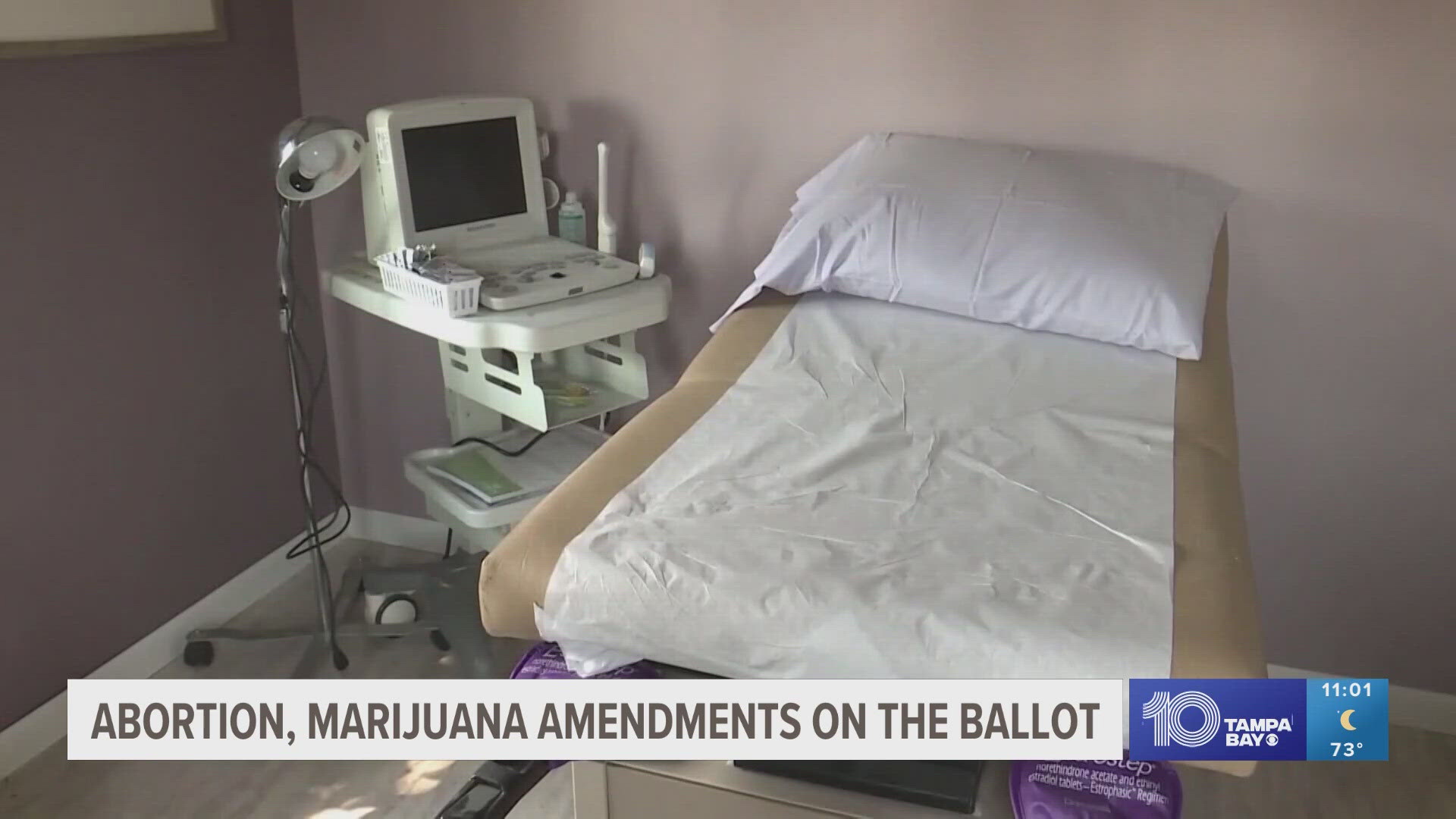TALLAHASSEE, Fla. — The Florida Supreme Court ruled on Monday that two proposed amendments regarding abortion and recreational marijuana are consistent with state law. This means Florida voters will see both amendments on the November 2024 ballot.
On Election Day, voters will decide whether to approve or vote down the proposed constitutional amendments. To pass either amendment, 60% of voters need to vote “yes.”
You can read the state Supreme Court decision on the abortion amendment here, and the decision on the marijuana measure here.
Here is what you need to know about the two Florida constitutional amendments:
Florida abortion rights amendment (Amendment 4)
The amendment, sponsored by Floridians Protecting Freedom, would block Florida from prohibiting abortion until the point of viability — when the fetus is viable outside the womb. This is usually around 24 weeks of pregnancy.
If voters pass this amendment in November, the right to an abortion will be enshrined in the Florida constitution.
Attorney General Ashley Moody challenged this initiative, arguing there were different interpretations of what "viability" means and called it confusing to voters. The Supreme Court ruled on Monday that the measure shouldn't be taken off the ballot based on those reasons.
However, the Florida Supreme Court also upheld the state's law banning most abortions after 15 weeks, ruling that the law does not violate the state constitution or a privacy clause.
With this ruling, the Supreme Court clears the way for a more restrictive six-week abortion ban to take effect in 30 days.
Florida House Minority Leader Fentrice Driskell said Monday's ruling highlights the need for Floridians to "take the power away from out-of-touch extremist politicians and claim our rights ourselves come November."
"In 30 days, Florida will ban abortions after six weeks. That’s before many women even know they’re pregnant, and before a lot of tests for fetal health and viability can be done," her statement said, in part. "This ruling shows how critical it is that Floridians pass Amendment 4 this November, because it will protect abortion access in Florida’s constitution."
Attorney General Ashley Moody said she respects the court's decisions, but maintains that both initiatives are misleading to voters.
Florida recreational marijuana amendment (Amendment 3)
This amendment would allow the sale and possession of recreational marijuana for people 21 and older.
Current state law allows people over the age of 21 to buy marijuana if they have a medical marijuana card. If voters approve the amendment in November, people 21 and older will be able to possess up to three ounces of marijuana without a medical card.
It's sponsored by the nonprofit Smart and Safe Florida. Attorney General Ashley Moody also challenged this amendment, arguing that it violates the state constitution’s single-subject limit. The Supreme Court did not remove the measure from the ballot based on that challenge.
Advocates say medical marijuana is already a billion-dollar industry in Florida and is set up for a quick transition to recreational if voters give it the green light.
“Right now, there's about 900,000 patients that are approved for marijuana. So that means the total available market is you're only able to sell to those 900,000 patients in Florida. We have 20 million population and then we have another 120 million tourists. So the total available market for these [dispensaries] has just absolutely exploded,” Dustin Robinson, an attorney and partner at Mr. Cannabis Law, explained.
That means a major boost in revenue for the state. According to a recent state analysis, Amendment 3 could generate $195-$431 million in sales tax revenue per year.
But even some advocates for legalization aren’t exactly gung-ho about the proposal.
Carlos Remida, the owner of Chillum, which sells hemp products at stores in Ybor City and St. Petersburg, says the current amendment only benefits large corporations and doesn’t allow the public to grow their own marijuana plants.
“There's a lot that we would actually have to advocate for if this does pass,” Remida said.
Other opponents fear opening up legal access to marijuana could cause other issues.
Dr. Kevin Sabet, the president of Smart Approaches to Marijuana Action says, in part, "Legal weed in Florida will cost taxpayers more money, worsen an already significant mental health crisis, impact public safety and snare more young people and minority groups in a spiral of addiction.”

